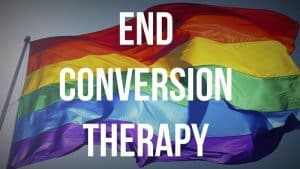MA joins multistate effort to defend Colorado’s conversion therapy ban

Massachusetts Attorney General Andrea Joy Campbell joined a coalition of attorneys general in filing an amicus brief at the U.S. Supreme Court defending Colorado’s law that prohibits licensed mental health professionals from practicing conversion therapy on minors. The case challenges the state’s authority to protect youth from a practice widely recognized as harmful and ineffective. Conversion therapy, also called sexual orientation change efforts (SOCE), attempts to change an individual’s sexual orientation or gender identity. The practice has been condemned as ineffective and dangerous by leading medical and mental health organizations, in...
Want to keep reading this article from New England Psychologist?
Login below or subscribe today to support independent journalism!
